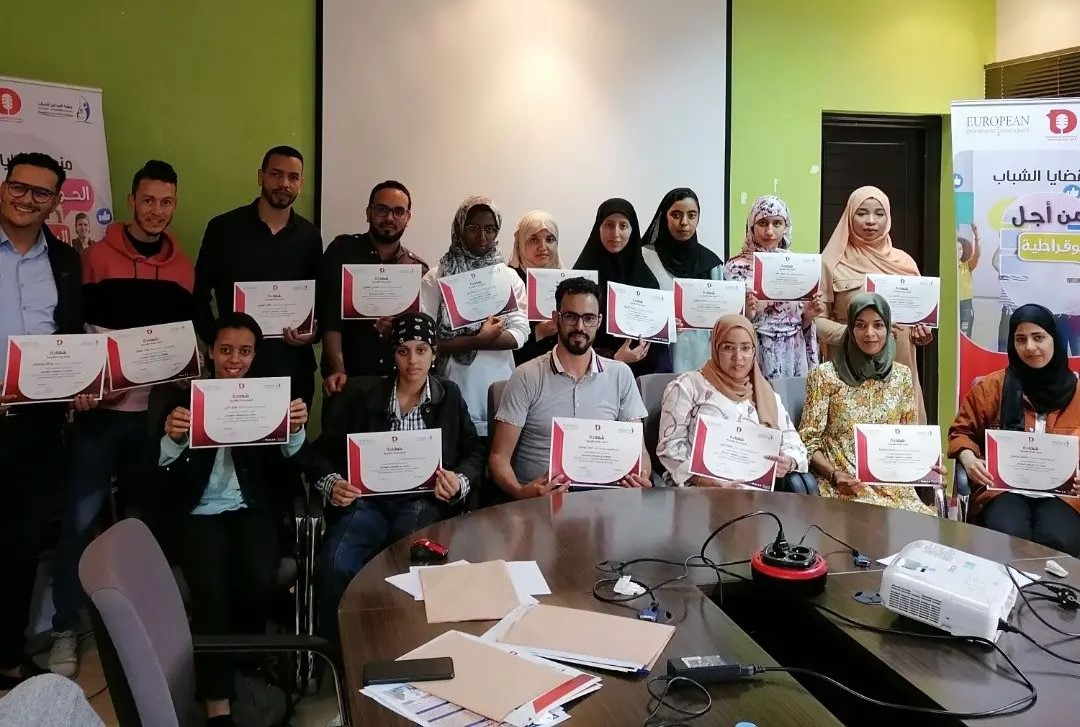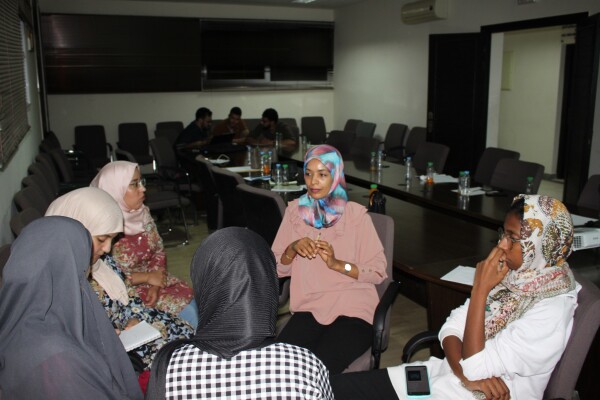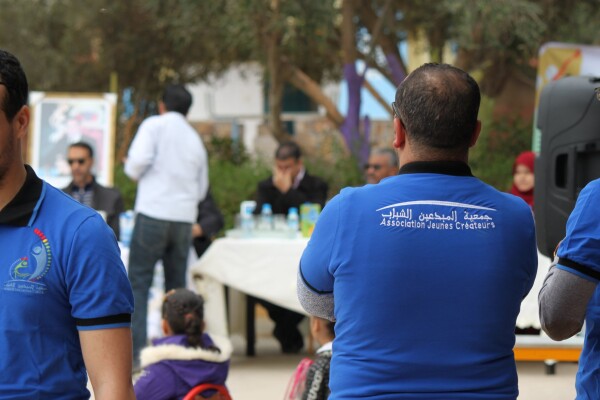
"We try to create a neutral space where people can come and speak to each other without polarisation," says Lahcen Chuis, president of the Young Creators Association (AJC), that was founded to nurture and support creativity among Moroccan youth in Guelmim-Oued Noun.
Guelmim-Oued Noun, in southern Morocco near the Western Sahara, is a marginalised area with strong tribal and political divisions. Young people have few opportunities.
Lahcen explains that AJC started as a youth club at Ibn Zohr University in Agadir and became an independent association based in Guelmim-Oued Noun in 2013. Initially, its goal was to discover young talents, offer artistic training, and help them build networks in the cultural sector. Over time, AJC expanded its activities to include human rights to address broader societal issues and promote a culture of dialogue.
Through various projects, the Young Creators Association addresses key issues faced by the region's youth raising awareness on topics that are rarely discussed in public. AJC focuses on encouraging democratic dialogue and youth creativity; educating the youth on sexual and reproductive health; enabling social development; as well as supporting young people in general, especially young girls from marginalised rural areas.

“Our ‘Dialogue for Democracy: Youth Issues Platform’ is the first of its kind in Guelmim. It gives youth the chance to connect and talk with decision makers and politicians directly,” says AJC treasurer Hassan Bousmene. Developed with EED’s support, this online media platform is a key program of AJC that facilitates dialogue between local youth and decision makers.
The platform is designed to ensure that young people are involved at every step. They choose which decision maker will be featured, submit their questions, and provide feedback. ‘Dialogue for Democracy’ ensures that the youth’s questions and issues are heard in a context where they usually have little voice.
“There have always been many obstacles to reaching those in charge. This initiative has overcome those obstacles. We collect the main issues from young people and share them with the decision makers on the platform. We wanted these issues and questions to be heard,” says Hassan.
Lahcen adds that the platform holds politicians accountable by questioning their policies and actions and debunking widespread misinformation. While an increasing number of politicians are responsive and willing to appear on the platform, the AJC team has encountered resistance from some decision makers who are reluctant to participate and face accountability. In these instances, the association has chosen to remain transparent by publishing the names of those who refuse to participate, to exert pressure on them.
“A testament of the success of our work is that we have been receiving requests to produce episodes from outside the Guelmim region with input from people on the ground,” says Lahcen. One of AJC's latest episodes of Dialogue for Democracy related to the Tiznit province on the West coast of Morocco.
The platform's growing popularity has led to a significant increase in the number of young people wanting to volunteer with AJC. This rising demand reveals the platform's impact on youth, who have become more interested in public debate and shows the importance of giving youth a voice in the democratic process.
The ‘Dialogue for Democracy’ initiative has sparked real changes on the ground. It played a part in reviving the “Equality, Equal Opportunities and Gender Approach Authority” (EEOGAA) in Guelmim-Oued Noun. This advisory body, entrusted with providing observations and consultations to elected councils and usually made up of leaders from active civil society organisations, had mostly been inactive despite its existence. The AJC platform seemed to make a difference in reactivating the advisory role of this entity. During the first episode of ‘Dialogue for Democracy’, where the Vice President of the City’s Municipal Council was a guest, young people called for local civil society to be more involved in decision making. After this meeting, EEOGAA's role was revived, and civil society organisations, including those focused on youth, were invited by some councils to participate in discussions about upcoming projects and budget plans.

Moreover, EED's support was crucial in helping the AJC team grow. As an independent youth organisation not affiliated with any political group, the Young Creators Association doesn't receive public funding and relies on self- and donor- funding as well as volunteers.
EED's grant helped the team improve their administrative and financial skills to ensure the organization's sustainability. "The internal training on fundraising has helped us a lot. We now have the knowledge and capacity to apply for funding from other donors," says Lahcen.
The team set up and equipped their own studio. Thanks to additional technical training facilitated by EED, the AJC team was able to diversify the content offered on the platform and develop their video production capacities. They no longer need to outsource the production of their 'Dialogue for Democracy' episodes.
AJC was also able to develop its network by establishing partnerships with various platforms across the region, including in Lebanon and Yemen, to exchange experiences and best practices.
Over the past 10 years, the Young Creators Association (AJC) has gained recognition and awards for its work with marginalized youth. AJC is well-known among Moroccan NGOs and often receives requests to produce content in other regions of the country. Lahcen hopes to expand AJC's reach to North Africa and the wider MENA region, focusing on gender equality by hosting feminist leaders and highlighting gender issues .
This article reflects the views of the grantees featured and does not necessarily represent the official opinion of the EED.